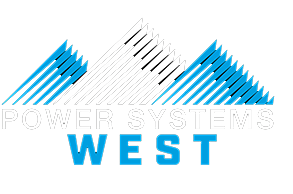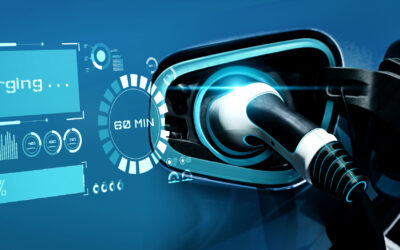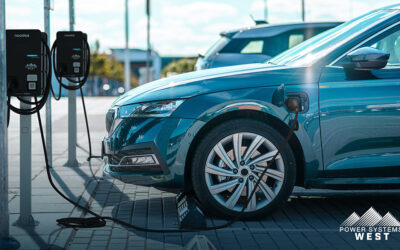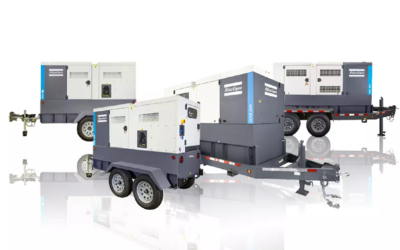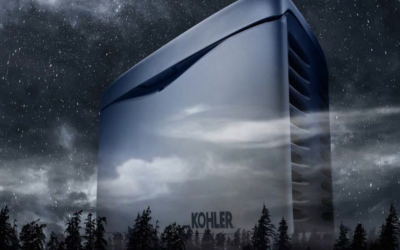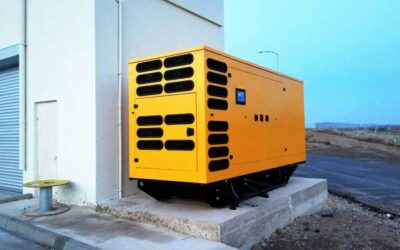“Charging the Future: Join the PSW team to learn about cutting edge EV charging solutions for your business” Category: Online EventDate: February 5th, 2024 Join us for an electrifying journey into the future of sustainable transportation at the...
Generator Buying Guide: Features to Consider
Generator Buying Guide: Features to Consider
Date: December 2nd, 2022
Choosing the right generator can be challenging, given that job site and home power requirements differ. This means generator selection is purely case-based rather than general. For example, different commercial establishments require different models of generators depending on their power usage. Although the market is flooded with various types of generators, Kohler generators come in a wide selection to meet home and commercial power backup requirements.
Numerous factors influence the choice of generators customers purchase. However, it is important to know that each generator model has different features that give it unprecedented efficiency. Check out features to consider when purchasing a generator for commercial or home use.

Fuel Type
There are various generator types, including propane, gasoline, diesel, bi, and tri-type generators. Before deciding which generator to purchase, it is important to know the pros and cons of each fuel type. For example, diesel generators are more efficient and have low upkeep and maintenance requirements. In addition, diesel is known to have a longer shelf life than gasoline. However, diesel generators become prone to breakdowns if not run regularly.
On the other hand, gasoline generators are cheaper than other models, and their fuel is readily available. However, gasoline can be hard to come by in cases of natural disasters. Propane or LPG generators are the third type you can purchase for commercial use. Unlike diesel or gasoline, propane can be stored for a long time without degrading. However, it requires a separate storage tank.
The other type of generator is the bi or tri-generators that combine all the above fuels, making them the most versatile. This adaptability to various fuel types is the most incredible way of surviving a fuel crisis.
Wattage
Each home or commercial site has a different power requirement. Therefore, choosing a generator that can meet your power needs is prudent. Generators show the starting and the continuous wattage. The starting wattage shows how much power the generator needs to start, while the continuous shows what it needs to keep it running. Request a generator wattage chart or calculator to determine how much energy your home or business will require. To determine your starting watt requirement, add up the running watts of your equipment and then add the highest amount of starting watts. The result is the starting watts required for your new generator.
Run Time
If you are purchasing a backup generator, you might not know how long it might be needed to keep running. However, Kohler generators have run time, among other features of each model. Refer to your wattage requirement to determine the possible run time needed at your business or home. A powerful generator always has a longer and stronger run time.
Power Phase
When considering the power phase, there are two types of generators: the traditional single-phased and the three-phased generator. In the case of the single-phase generator, the generator only produces one power wave meaning the power falls to zero three times in a cycle. Three-phased generators are designed to provide three alternating power currents, which never drop to zero.
A single-phased generator can keep a small commercial establishment running. However, a large establishment with high wattage requirements will need a three-phased generator.
Sound
As the use of backup generators increases in commercial and residential areas, laws and regulations have been created to control noise levels. A standard generator sound is 75db in an industrial zone and 85-90db in residential areas. However, depending on the application location, you might need a generator with lower noise levels.
To determine the noise levels of a generator, check the decibel levels and ensure its muffler is of high quality. Inverter generators are the quietest compared to most models on the market, making them the most suitable for home and commercial sites in sound-restricted zones.
Size & Portability
Mobility is a critical aspect to consider when purchasing a commercial or home-use generator. Although most generators for commercial sites tend to be bulky, they should provide a way to move them when necessary. Also, if you need a generator for camping or a remote work site, a reasonably sized generator would give room for transportation without needing special means of transport.
However, not all portable generators can be moved easily; some are quite heavy to carry by hand. In this case, consider a generator with wheels for easy movement. A generator with large rear wheels is always easier to move than one with small wheels.
Automatic Start
Manual generators are started by pulling cords. More advanced models come with a start button making them easier to start. However, the best generator model should monitor the electrical load of the power system and start automatically when the system is interrupted. Automated generators are ideal for medical equipment, refrigerators, and any equipment that needs an uninterrupted power supply.
Displays
All advanced machines come with gauges to help users monitor resources and performance. The oil gauge is arguably the most critical in a generator that allows you to monitor the oil level. A low oil level can cause permanent damage to a generator motor hence the need to keep watch. The fuel gauge is equally essential since it displays the fuel level. If well monitored, it gives room for refueling before the generator goes off.
Inverter
The traditional generator produces an alternating current that can destroy sensitive appliances such as laptops. An inverter is therefore designed to convert the alternating current to a direct current, which is safer. In addition to producing safer energy for appliances, inverter generators have less noise, making them the most preferred for household needs.
Clean Power
When a generator is running, it burns fuel, and that combustion process produces a toxic gas, carbon monoxide. Although manufacturers recommend generators to operate from outside to prevent deaths that CO can cause, the Environmental Protection Agency (EPA) is constantly reviewing regulations on air pollution. For diesel generators, ensure to purchase a Tier 4 compliant generator.
A home-use generator should also have a carbon monoxide detector that automatically shuts it off if the CO exceeds the danger threshold.
Conclusion
Purchasing a backup generator for business or household needs is a significant investment. However, you must know your exact requirements to buy a machine with the ideal features.
Contact Us
Recent Blogs
Power Systems West Announces Strategic Partnership with Noodoe to Pioneer EV Charging Systems Across the Pacific Northwest and Rocky Mountain Regions
Power Systems West Announces Strategic Partnership with Noodoe to Pioneer EV Charging Systems Across the Pacific Northwest and Rocky Mountain Regions Category: Press Release – FOR IMMEDIATE RELEASEDate: January 19th, 2024 Portland, Oregon – Power Systems...
Introducing Power Systems West as the Premier Equipment Dealer for Atlas Copco Power Technique in the Pacific Northwest and Rocky Mountain Regions
Introducing Power Systems West as the Premier Equipment Dealer for Atlas Copco Power Technique in the Pacific Northwest and Rocky Mountain Regions Category: Press Release – FOR IMMEDIATE RELEASE Date: September 19th, 2023 Portland, Oregon – Power Systems...
Introducing HVO: Kohler’s Groundbreaking Whitepaper
Introducing HVO: Kohler’s Groundbreaking Whitepaper Category: Kohler PowerDate: July 7th, 2023 At Power Systems West, we are thrilled to introduce an exciting development in the world of power generation. KOHLER, a renowned engineering thought leader and...
Power Systems West Legends Racer Continues Winning in First Semi-pro Season
Power Systems West Legends Racer Continues Winning in First Semi-pro Season In spring of 2022, Power Systems West became the title sponsor for Leon Tridle III, a rookie on the U.S. Legends Cars International (USLCI) racing circuit. Although it was his rookie season,...
Maintenance Recommendations for Diesel Generators
Maintenance Recommendations for Diesel Generators Maintaining a diesel generator is key to its longevity and performance. Diesel generators provide reliable power sources at sites where electricity may not otherwise be available. To ensure that your diesel-powered...
